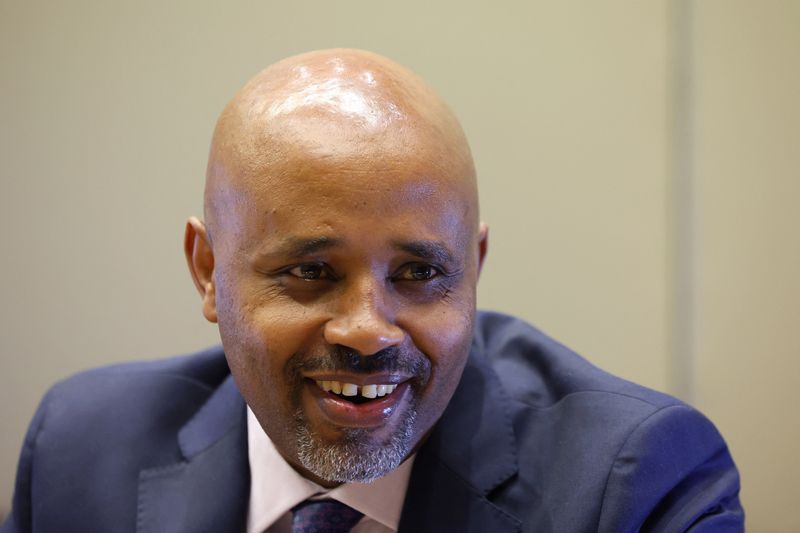Ethiopia sees bondholder losses as unavoidable, hopes for fresh talks at IMF meeting
2024.10.09 06:22
By Karin Strohecker
LONDON (Reuters) – Ethiopia’s bondholders will have to take a writedown as part of the country’s debt restructuring, State Finance Minister Eyob Tekalign told Reuters, adding he still hoped the debt rework could be completed by year-end.
Ethiopia became Africa’s third country to default in as many years in December 2023, but progress on restructuring its international debt has been slow as the country negotiated a $3.4 billion programme with the International Monetary Fund.
Investors have rejected the government’s most recent indicative debt rework scenario, which sets out an 18% haircut – or writedown – on its sole $1 billion bond maturing in 2024.
Ethiopia needs to abide by the IMF’s debt sustainability analysis which envisages Ethiopia “moving to medium risk distress under low debt carrying capacity in the next two, three years,” said Eyob, referring to the calculations and projections underpinning debt reworks.
“Based off of that, some haircut is needed,” he said, adding the latest debt sustainability analysis showed the country had a solvency issue and not just the liquidity crunch bondholders had assumed.
Eyob said non-disclosure agreements between the government’s and the bondholders’ advisors were extended last week to spring 2025, allowing for more negotiations.
However, formal talks with bondholders were not on the agenda right now though Ethiopia was open to meeting them on the sidelines of the IMF World Bank meetings later this month.
“We’re hoping to meet them there,” Eyob said.
Speaking about efforts to shelter the poorest section of the population from the fallout of birr depreciation, Eyob said a raft of measures had been taken for which the government had earmarked 30% of its budget in 2024.
Measures ranged from subsidies for items such as cooking oil, fertilizer and fuel, to lifting salaries of civil servants by as much as 300% for those on the lower pay scale.
Eyob said he did not expect price pressures to materialise on the scale predicted by analysts, who have forecast average inflation could hit 30% in 2025 after 23% this year.
“The signs are that we are actually going… on the opposite side of that,” he said, confirming the country was on track for single digit inflation by June 2025.
Government reforms had sparked fresh interest from investors, Eyob said, predicting foreign direct investment – which came in at more than $3 billion in the financial year to early-July – to double in the next two or three years.
“Mining is a fairly new sector… and we’re seeing significant interest in this,” said Eyob, adding agriculture and manufacturing were also a focus.

Asked about a swap line Ethiopia has agreed with China’s central bank according to reports in September, Eyob declined to give details, though said it should be bigger than the $800 million it has with the UAE.
“It would significantly enhance business between the two countries,” he added.








